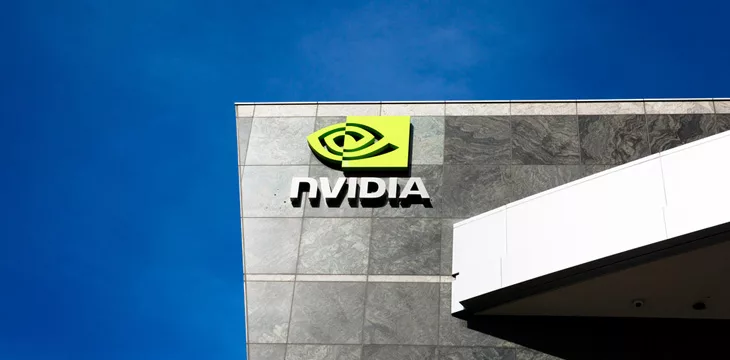|
Getting your Trinity Audio player ready...
|
Nvidia (NASDAQ: NVDA) has unveiled its latest high-end chip designed specifically for training and deploying artificial intelligence (AI) models amid rising global interest in graphics processing units (GPUs).
At its Supercomputing 2023 event, Nvidia announced that the new chipset will power the next wave of generative AI models. Dubbed the H200, Nvidia’s latest chip range is an upgrade from the H100, offering increased specifications and capabilities.
The H200 boasts twice the performance of its forerunner and incorporates a groundbreaking 141GB memory, granting unparalleled inference capabilities. Nvidia positions it as the market’s most potent AI chip.
As stated, Nvidia’s H200 will be available in four-GPU or eight-GPU server configurations, enhancing compatibility with the H100. This ensures seamless deployment for AI firms using the H100, eliminating the need for server system overhauls.
“To create intelligence with generative AI and HPC applications, vast amounts of data must be efficiently processed at high speed using large, fast GPU memory,” said Ian Buck, VP of Hyperscale and HPCs at Nvidia. “With NVIDIA H200, the industry’s leading end-to-end AI supercomputing platform just got faster to solve some of the world’s most important challenges.”
Early test results of the chips on Meta‘s (NASDAQ: META) Llama 2 yielded impressive results, with Nvidia confirming a doubling of inference speeds. The company adds that it will roll out new updates via future software updates, eyeing a global launch in the second quarter of 2024 for cloud service providers and system manufacturers.
Although the statement did not shed light on prices, pundits expect the new chips to cost more than the price of H100, which ranges from $25,000 to $40,000, according to financial firm Raymond James. In the hours following the announcement, Nvidia’s
stock rallied to trade at $486.20, expecting to net over $15 billion in revenue from sales.
Nvidia’s successes with AI chips have seen the company’s valuation surge beyond the $1 trillion mark, higher than the previous peak set during the block reward mining gold rush for GPUs. As they advance, Nvidia said it will proceed with a one-year release schedule for new AI chips, ditching its previous two-year routine.
Glowing metrics amid mounting regulatory tensions
Despite the glowing metrics around Nvidia and the pace of innovation, the company has endured a rough patch with regulators around the globe. Following mounting tensions, U.S. authorities banned the chip manufacturing company from selling its high-end chips to China over national security concerns.
While the trade embargo may not significantly dent the company’s finances, Nvidia says a prolonged ban may adversely affect its earnings.
In Europe, Nvidia is at the center of an antitrust investigation, underscored by a dawn raid on its Paris offices over allegations of anti-competitive practices. The company faces stiff competition from Advanced Micro Devices (NASDAQ: AMD) and Intel, with firms and nations in an AI arms race.
In order for artificial intelligence (AI) to work right within the law and thrive in the face of growing challenges, it needs to integrate an enterprise blockchain system that ensures data input quality and ownership—allowing it to keep data safe while also guaranteeing the immutability of data. Check out CoinGeek’s coverage on this emerging tech to learn more why Enterprise blockchain will be the backbone of AI.
Watch: AI Forge masterclass: Why AI & blockchain are powerhouses of technology

 07-18-2025
07-18-2025 





